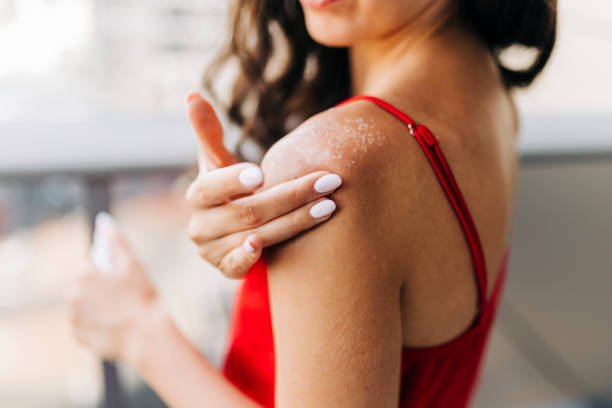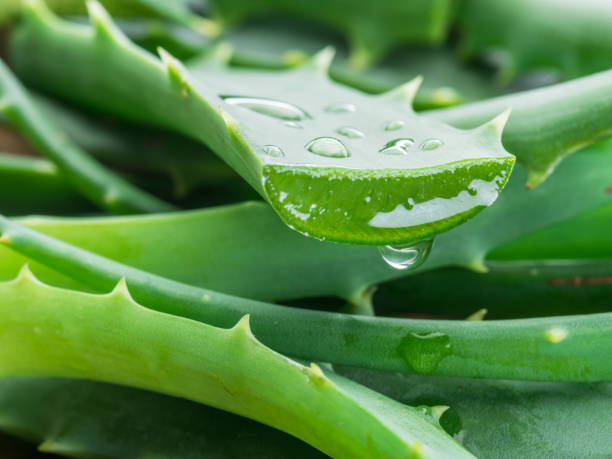Every person dreams of flaunting radiant and glowing skin, but achieving that perfect complexion often seems like an elusive goal. While there is an array of skincare products available on the market, sometimes the most effective solutions lie in nature's own remedies.
Having glowing skin is often associated with a healthy and radiant appearance. While natural remedies may not work for everyone, it's essential to consult a dermatologist for specific skin concerns.
Understanding individual skin types and sensitivities
Understanding individual skin types and sensitivities is crucial for maintaining healthy skin and making informed decisions about skincare products and treatments. Skin type and sensitivity can vary significantly from person to person, and it's essential to tailor skincare routines accordingly. You can visit here to get some tips on your skincare routine.
1. Skin Types:
- Normal Skin: This is considered the ideal skin type. It has a good balance of oil and moisture, appears smooth, and has few blemishes or imperfections.
- Dry Skin: This type lacks sufficient moisture and can feel tight or rough. It may also show signs of flakiness or fine lines.

- Oily Skin: Oily skin produces excess sebum, making the complexion shiny and prone to acne and clogged pores.
- Combination Skin: This is a mix of different skin types on different areas of the face. It's common to have an oily T-zone (forehead, nose, and chin) and normal to dry cheeks.
- Sensitive Skin: Sensitive skin is easily irritated, resulting in redness, itching, or stinging. It may react to certain skincare products or environmental factors.
Factors Affecting Skin Sensitivity
- Genetics: Skin sensitivity can be inherited, making some individuals more prone to reactions and irritation.
- Environmental Factors: Exposure to harsh weather conditions, pollution, and UV radiation can increase skin sensitivity.
- Allergies: Certain ingredients in skin care products or allergens in the environment can trigger allergic reactions in sensitive individuals.
- Skin Conditions: Pre-existing skin conditions like eczema, rosacea, or psoriasis can make the skin more sensitive and prone to irritation.

- Hormonal Changes: Hormonal fluctuations during adolescence, pregnancy, or menopause can affect skin sensitivity.
Remember that everyone's skin is unique, and what works for one person may not work for another. Be patient and observant when trying new skincare products, and make adjustments based on how your skin responds. If you have concerns about your skin, it's best to consult with a dermatologist or skincare professional for personalized recommendations.
Natural Remedies for Glowing Skin
These easy-to-implement tips are not only cost-effective but also promote overall skin health. So, let's dive into the world of natural skincare and unleash your skin's true radiance!
1. Hydration: One of the simplest and most effective ways to achieve glowing skin is to stay well-hydrated. Drink plenty of water throughout the day to keep your skin moisturized and help flush out toxins. Herbal teas and water-rich fruits like watermelon and cucumber can also contribute to your hydration levels.

2. Healthy Diet: A balanced and nutritious diet can have a significant impact on your skin's health and appearance. Incorporate fruits and vegetables rich in antioxidants, such as berries, leafy greens, and citrus fruits. These antioxidants can help combat free radicals and reduce inflammation, which may contribute to a radiant complexion.

3. Natural Face Masks: Using natural face masks can help nourish and revitalize the skin. Some popular options include:
- Honey and Yogurt Mask: Mix equal parts honey and plain yogurt. Apply to your face and leave it on for 15-20 minutes before rinsing off. Honey has antimicrobial properties and can help retain moisture, while yogurt contains lactic acid, which can exfoliate and brighten the skin.
- Turmeric and Milk Mask: Mix turmeric powder with milk to form a paste. Turmeric has anti-inflammatory and antioxidant properties that can promote radiant skin, while milk provides gentle hydration.
- Avocado and Banana Mask: An avocado and banana mask is a natural and nourishing facial mask made from two powerful and beneficial fruits: avocado and banana. Both of these ingredients are rich in vitamins, minerals, and antioxidants that can help improve the health and appearance of your skin
4. Facial Massage: Gently massaging your face can help improve blood circulation and lymphatic drainage, leading to a healthier complexion. Use upward and outward strokes, and consider incorporating a facial oil like almond oil or rosehip oil to provide extra nourishment and hydration.
5. Aloe Vera Gel: Aloe vera has soothing and moisturizing properties that can benefit the skin. Apply fresh aloe vera gel directly to your face and leave it on for about 15-20 minutes before rinsing off. Aloe vera can help reduce redness, and inflammation, and improve overall skin texture.

6. The Power of Natural Exfoliation: Regular exfoliation helps remove dead skin cells, unclog pores, and stimulate cell turnover, leading to brighter and smoother skin. Instead of using harsh chemical-laden exfoliants, opt for natural alternatives. Consider using gentle exfoliants like coffee grounds, oatmeal, or a mixture of honey and sugar to buff away impurities and reveal a fresh, radiant layer of skin.
Conclusion
Remember that everyone's skin is unique, and what works for one person may not work for another. If you have specific skin concerns or allergies, it's crucial to do a patch test before trying any new natural remedies. Additionally, maintaining a consistent skincare routine and protecting your skin from excessive sun exposure is also essential for achieving and maintaining glowing skin.




